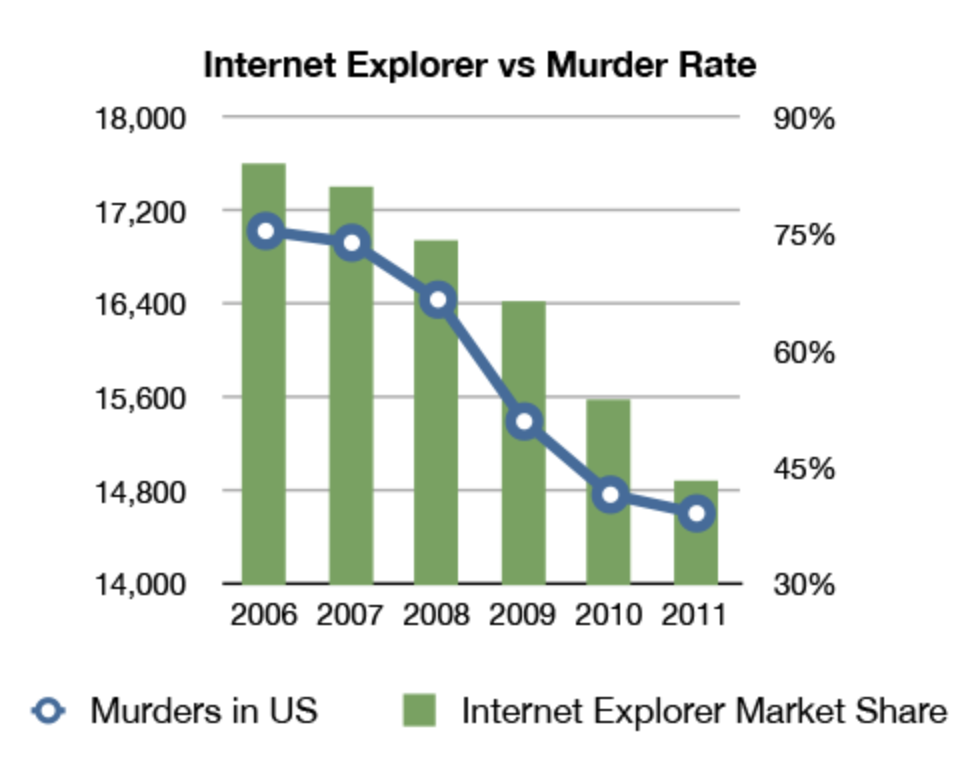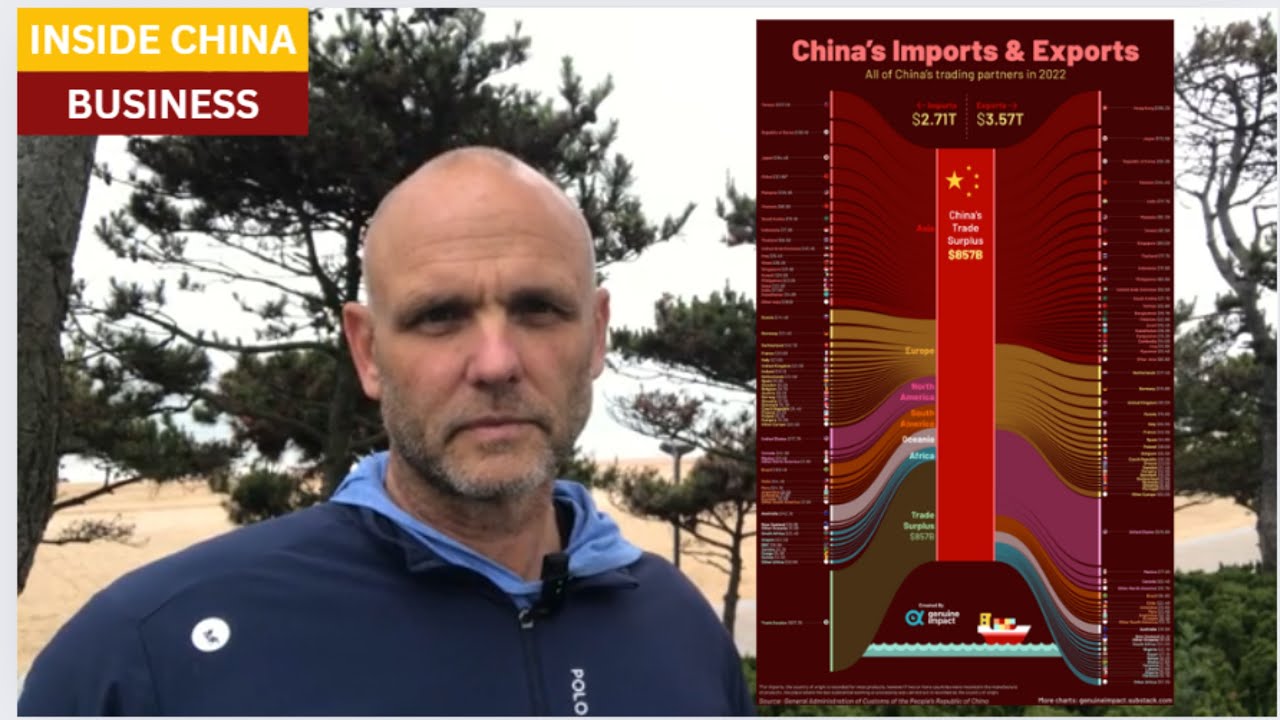- cross-posted to:
- economics@lemmy.ml
- geopolitics
- cross-posted to:
- economics@lemmy.ml
- geopolitics
This guy appears to be a bit of a nutter, in this video he claims China’s incredible economic success is because of their adoption of Christianity.
lol that is a nutty take, those charts he has kinda reminded me of this 😂

This is what forcing Edge on your users does to people kids, use Linux instead
This hurts to look at
You don’t like looking at 18,000 internet Explorer market share?
Yeah I found out about him some weeks ago, and in case you haven’t noticed there’s bible whispers at the end of every video. He’s a weirdo, but aside from the Prester John China video I’d say his takes seem mostly useful.
Youtube is filled with Gold Bugs trying to make you buy gold because China is buying it all. Meanwhile this guy is talking about how the UAE can financially back a BRICS grain exchange and how China isn’t just ‘selling dollars to buy gold’, but subverting the entire dollar system to it’s benefit. It’s certainly more interesting than your usual BRICS stuff, which happens to be filled with AI videos too.
He just summarizes news articles, idk how useful that is lol
are you besmirching our holy news comm
in a more serious note the amount of content online that is AI bullshit narrating uniquely uninformative things instead of just bringing up interesting articles and commenting on what they actually say is just insane. this guy at least isn’t trying to sell me on gold.
aside from the Prester John China video I’d say his takes seem mostly useful
what i can say, the shoe fit
Thanks a lot. Found the channel a monto or so ago, and liked the takes, but can’t understand the religious endings. Now everything makes sense.
I found a YouTube link in your comment. Here are links to the same video on alternative frontends that protect your privacy:
Pulling out so much bond investment at a loss is kinda spooky. The Chinese have much more reliable Intel about what the US government is planning than just about anyone else, and a massive move like that means their confidence doesn’t even extend out 5 years before a conflict big enough that the Fed would wipe out any global trust in the USD.
That’s my read on this as well. If China is dumping assets at a loss, they clearly see this as being very urgent.
The idea that they’re forming an alternative USD market also makes sense. A majority of the world holds debt in USD and if they control enough of the supply through their own banks, it’s harder for the US to force a nations hand by forcing them to trade when they can go to China for the same USD loan on better terms.
It also gives them the option of loaning out USD and requesting payment in another currency (either theirs or the domestic currency of the loan holder)
Absolutely, and I think this is why a BRICS currency is inevitable long term. Countries outside US control can’t continue using the dollar because US uses it as a weapon.
Definitely, it’s ironic that dollarization basically starts with massive adoption of the dollar.
This is like the nation state version of Microsoft’s the E’s
Embrace the dollar
Extend it’s usage in global trade through your own financial instruments
Extinguish the original dollar
lmao
Possibly the only instance of that capitalist process being used for good lol
and a massive move like that means their confidence doesn’t even extend out 5 years before a conflict big enough that the Fed would wipe out any global trust in the USD.
Probably just the Ukraine war right? A complete and total seizure of Russian USD assets
That’s definitely the start, seeing it with Afghanistan and Russia made it clear that it could happen, then the decision to finally pull out of Western banks was likely decided because they see the escalation of tensions with them actually leading to something.

Pro tip: anyone who talks about Bitcoin, gold or “fractional reserve banking”, you can safely ignore.
Building a new banking system using a currency that you cannot print yourself? That’s even stupider than the euro, which in itself is already one of the stupidest things to happen over the past century.
why are euros stupid? (not the people)
Well first, Eurozone countries cannot print their own currencies. The European Central Bank run by private bankers makes the decision. So, each Eurozone country is effectively functioning like a US state (e.g., Arkansas, California) under the US federal government, where their revenues have to come from taxation and trade surplus.
In order for the government of a Eurozone country to spend, they have to use their revenues, or issue debt. They cannot create new net wealth through central bank money creation, because they don’t control the central bank!
You have one set of monetary policy (i.e., interest rate) applied to nearly two dozen countries, at varying levels of economic development. All have to obey the same interest rate. At any given rate, it will be beneficial for certain countries and detrimental for others, and all of the countries have to follow whatever rate that is set by the ECB.
This makes economic planning difficult and the fiscal space limited when it comes to government spending. Don’t make enough trade surplus to cover your expenses? Well, either increase taxes (more burden on the people) or commit more austerity (cut social spending and public utilities). If you’re still struggling, then you’d have to borrow the money (i.e., issue debt to private investors), and get locked into a debtor situation with no hope of ever getting out of it.
That’s what you get for giving up monetary sovereignty, e.g., the ability to print your own currency (effectively turning yourself into a state government), pegging your own currency to another currency (like the US dollar) or metal (like gold), or borrow in a foreign currency (many of the Global South countries take IMF loans that they cannot possibly repay).
Countries like Germany benefit the most from this arrangement because as a manufacturing exporter, it could leverage the lowered exchange rate (which is still higher than the US dollar, mind you) dragged down by the poorer peripheral European countries to make its exports more competitive. But the poorer countries typically get screwed in the process.
As if this is not enough, the European Central Bank itself does not have mechanisms to absorb excess public debts of countries running persistent trade deficits.
Let’s take Greece as an example. Germany is a net exporter country, a manufacturing industrial powerhouse - it exports more goods to Greece more than it imports from them. So, Greece is the net importing country in this bilateral trade relation. Since Greece doesn’t make enough revenues to sustain a persistent import from Germany (running a persistent trade deficit), it has to issue debt to finance its expenses. As the debt accumulates, private investors no longer want to buy them because it’s clearly too much and the Greek government doesn’t show any prospect of being capable of repaying them. The European Central Bank also doesn’t want to buy them, since it works for private bankers who are only concerned with profits. As a result, Greece gets screwed in the process with over 300 billion euro debt during the Greek sovereign debt crisis.
In comparison, most national economy (e.g., the United States) have mechanisms to settle imbalances between regional economies. Clearly there are richer states and poorer states, there are states that export more and there are states that import more. The federal government plays a key role in offsetting these imbalances, using various mechanisms to inject funding to ensure that net importing states do not get into a persistent deficit situation, so you know, Alabama doesn’t have to default just because it doesn’t make enough revenues to sustain itself.
Even then, you have to consider that these are states under the US federal government, whereas Eurozone countries are independent countries that are supposed to run independent fiscal policies.
The EU and the Eurozone have no such mechanisms. So the poor countries usually get screwed and have to sell off their public utilities to private investors when they could no longer repay their debt. This is pure neoliberalism in action.
Agree there, not there is some validity to the idea of China using USD reserves to take over IMF debt. Using cash reserves to buy out debt in Africa and South America then renegotiating those loans on better terms with payment in local currency or Yuan.
Yeah, I think it’s pretty obvious that BRICS isn’t going to use some half baked crypto scheme as their reserve. I expect that something along the lines of Bancor is most likely.
deleted by creator
I found a YouTube link in your post. Here are links to the same video on alternative frontends that protect your privacy:
deleted by creator








